The New Normal in Automation for the “Novel” Economy
As the business world at large continues to adapt new processes and transformative technologies, how should we go about adjusting to the “new normal”?
The “New and Unusual” Normal
By now, most people have been familiarized with the phrase, the “new normal”. Brought about by the impact of COVID-19, the new normal ideology signifies a new era in business; businesses fueled by digital transformation, intellectual capitol and streamlined processes. It signifies a turning point from the old way of doing things, to a new and innovative way of doing things. But what is the new normal in automation?
In Automation Anywhere’s Digital Imagine 2020 Webinar, keynote speaker and Salesforce Global Innovation Evangelist, Brian Solis, introduced this transformative way of thinking as the “ctrl-alt-delete” method. Meaning, instead of businesses striving to go back to the way things were before the pandemic, perhaps a complete reset needs to be welcomed altogether. Further, after businesses exit the survival-mode way of thinking, a course needs to be set on the “thrive” aspect. Automation, and more specifically, robotic process automation, will serve as a staple in this new era for organizations to achieve just that.

Automation and the “Novel” Economy
In his keynote, Solis referred to this new area as the “novel” economy. Novel, especially in medical terms, is referring to something that is new and unusual, which is what Solis explained is what we’re going through now. As unusual as these times may be, they are also opportunities to bring about new innovative implementations that stick with businesses in the long run, rather than just temporarily.
Through AI-Driven processes, business can look to do one of two things – to automate old processes to make future implementations more efficient, or look to scaling those processes to not only automate, but completely revolutionize the demands of the future. Solis believes it may be a bit of both.
Iteration, Innovation, and Disruption
As organizations migrate through the different phases of their automation journey, we’ll see RPA implementations reach their full potential when processes are not only automated, but intelligent enough to self-adapt to other processes. To better put this journey in perspective, we can look at this process through three milestones that businesses within the novel economy will experience:
The Economic Outlook of RPA
In a recent report on automation’s impact on business, RPA Today states that automation spending by enterprise-level organizations will increase by 55%, or roughly $42 billion dollars within the next 5 years. RPA is reported to encompass at least half of that spending, rendering the investment of RPA technology to top out at nearly $25 billion dollars. This category pertains to intelligent automation practices that currently rely on knowledge workers to manually stimulate through data-driven accumulation.
The impact of COVID-19 has played a substantial impact on this estimation. Many businesses affected by stay-at-home orders, such as travel, healthcare and retail, will be among the first candidates to benefit from a fully scaled RPA implementation. In the dynamic shift of the “novel” economy, it’s predicted we’ll see these businesses most economically impacted experience growth through the automation wave.
The Time is NOW!
Perhaps one of the most economically devastating times in our era is what was needed to spark a complete reset in business processes. Perhaps the “new normal”, as it’s so commonly referred, should be the “next normal”, as it pertains to a complete disruption of outdated business practices. There is no digital transformation without automation, and RPA specifically will have a dramatic effect on the innovation of organizations across various industries for years to come.
Looking for more on RPA?
Explore more insights and expertise at smartbridge.com/automation
Keep Reading: The 4 Step Approach to Automating End-to-End Processes
There’s more to explore at Smartbridge.com!
Sign up to be notified when we publish articles, news, videos and more!
Other ways to
follow us:




